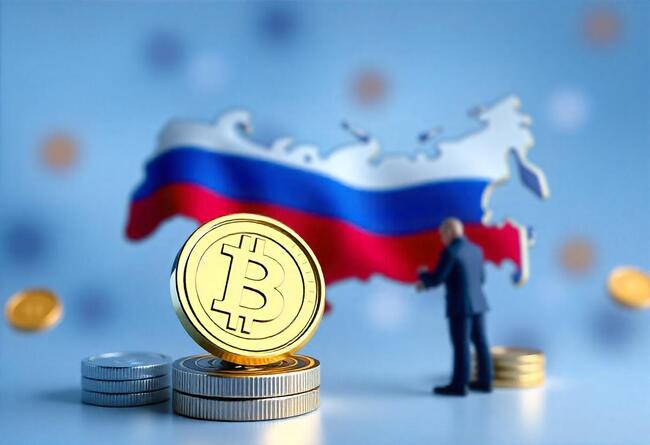Highlights:
- Russia is set to ban crypto mining in some regions, such as Siberia and occupied Ukrainian territories.
- The new crypto laws will impose taxes on mining while promoting energy efficiency and reporting requirements.
- Russia is advancing digital ruble integration to strengthen its financial system and expand its digital economy.
The Russian authorities are imposing more restrictions on cryptocurrency mining to solve the electricity shortage during the autumn and winter seasons. The bans will include regions in Siberia, the Russian North Caucasus, and the occupied parts of Ukraine.
According to Protos, Russian Deputy Prime Minister Alexander Novak announced plans to ban cryptocurrency mining in the Russian-occupied regions of Ukraine, a move aimed at addressing power shortages in the fall and winter. Six regions in Russia's North Caucasus will also face a…
— Wu Blockchain (@WuBlockchain) November 20, 2024
The purpose of these measures is to provide energy stability during the heating season. Deputy Prime Minister Alexander Novak led discussions over this decision. Officials weighed in on Cryptocurrency Mining as a major concern because it puts severe demands on the local power grid.
This move comes after Vladimir Putin enacted new crypto regulations that went into effect on November 1. These regulations aim to set up a framework to regulate mining while barring domestic crypto payments. They also aim to manage the running of mining operations and the use of energy effectively.
Seasonal and Long-Term Restrictions Target Key Areas
Seasonal bans will begin on December 1, 2024, and run through March 15, 2025. Every winter until 2031, restrictions will apply in Siberia, including regions like Irkutsk and Zabaikalsky. The ban will run from December 2024 to March 2031 for the North Caucasus and occupied territories. Mining operations will stop entirely in these areas with no seasonal exceptions allowed.
Complete bans on mining will apply to occupied territories, including Donetsk, Luhansk, Zaporizhzhia, and Kherson. Officials noted that the high energy demand in these regions is a vital issue. Russia is limiting mining activities to ensure sufficient electricity supply for residents.
Crypto Regulations and Tax Policies Take Effect
Russia has introduced new laws to regulate cryptocurrency mining pools and establish taxation procedures. Personal income tax on crypto-related incomes has been capped at 15% by the Ministry of Finance.
🇷🇺 JUST IN: Russia approves new crypto tax rules!
1️⃣ 💰 Crypto as Property: Digital currencies now classified as property for taxation.
2️⃣ ⚡ Miners' Relief: Overhead costs like electricity can be deducted from mining income#Crypto #Russia #CryptoTax 🪙… pic.twitter.com/hrOe0W0cST— Live BTC News (@LiveBTCNews) November 20, 2024
Authorities will tax earnings from mined cryptocurrencies based on their market value. Miners, however, can deduct operational expenses to reduce financial pressure. Tax authorities will treat crypto transactions as property for tax purposes. They will no longer have to pay value-added tax (VAT). The income from these transactions will be taxed like securities.
Implications for the Global Cryptocurrency Mining Industry
Russia remains among the world’s largest cryptocurrency mining hub. The country uses about 16 billion kWh of electricity for mining every year. Crypto mining makes up 1.5% of its total energy consumption.
The new restrictions could push miners to move operations to other countries. The miners also might opt to adopt less energy-intensive mining methods. These changes, experts say, could affect global mining capacity and cryptocurrency prices.
Meanwhile, Russia is still exploring digital currency initiatives. Moscow and St. Petersburg are developing national cryptocurrency exchanges. Its Central Bank Digital Currency (CBDC) will be launched soon for public use. The digital ruble is expected to be integrated into the National Payment Card System. The aim of this move is to add to the country’s digital economy and make financial transactions easier.





